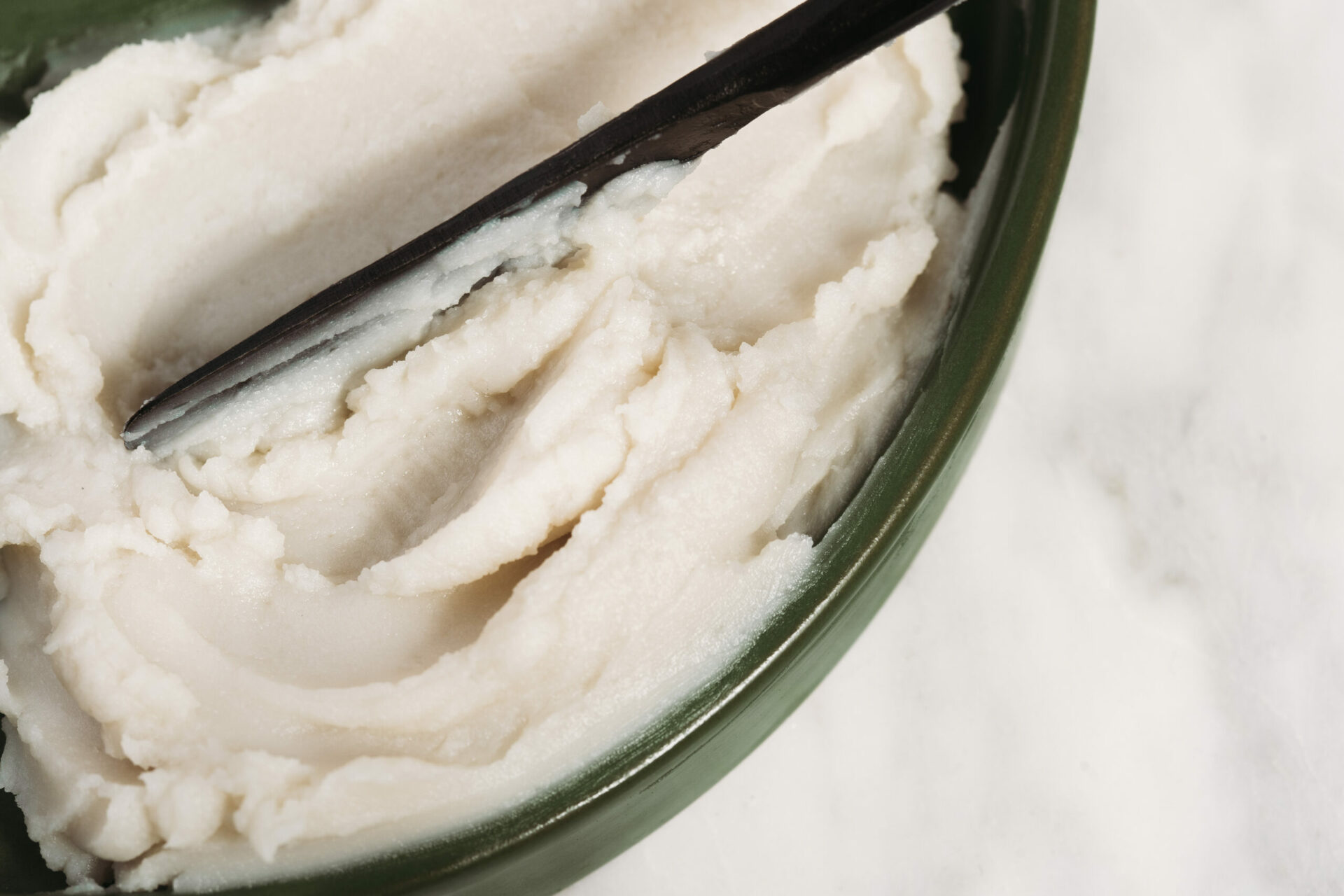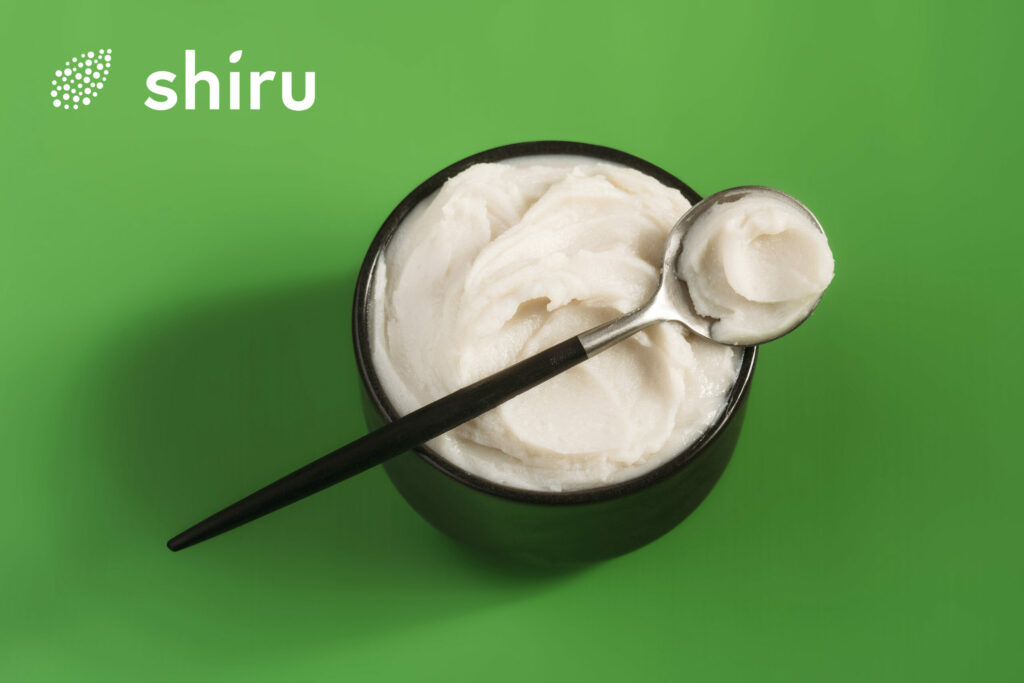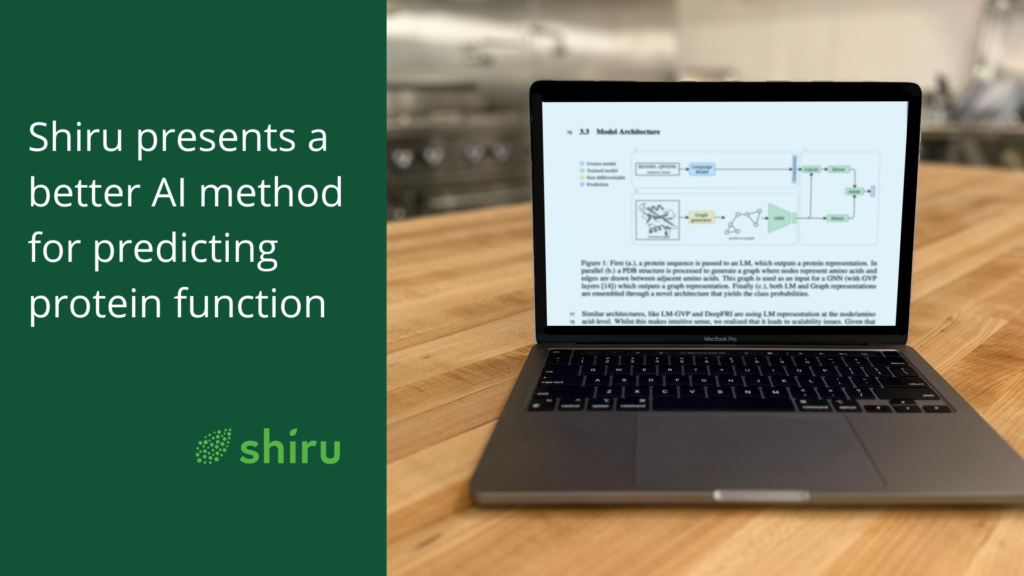Deep Tech Innovation for a More Sustainable Future
I’ve spent the majority of my career at the intersection of biotechnology, ingredients, and commercialization across industrial chemicals, personal care, and agri-food. Most recently, prior to joining Shiru, I led a global open innovation team at Ferrero, an Italian confectionery company, where we focused on identifying bio and ag-tech innovations to improve both the performance and sustainability of the Ferrero ingredient portfolio.
While working on a project to increase supply chain transparency in palm oil, I spent time on the ground in Malaysia and Indonesia where I witnessed first-hand the scale and impact tropical oils had on the environment. As one of the only widely available plant-based fats that remains solid at room temperature, palm was uniquely suited to meet the needs of our confectionery product formulators, and though we actively sought out more sustainable alternatives, few high-performance alternatives existed on the market. This experience was one of many instances during my time at Ferrero that highlighted the urgent need for novel, sustainable food ingredient solutions that deliver the taste performance and scale that consumers expect.
I’m a strong believer in the power of biotechnology and deep tech innovation to address some of the critical gaps of traditional ingredients. Having previously worked to tackle some of these challenges in the personal care space at Amyris, a synthetic biology company, I found myself considering how deep tech might enable novel food ingredient development to provide alternative solutions to address the problems I saw with palm oil and others while at Ferrero.
Shiru’s Technology Platform, Flourish™
This brought me to Shiru. Our team here is focused on leveraging our patented protein insights platform, Flourish™, to discover sustainable, functional food ingredients. Flourish helps us map the world of natural proteins, uniquely connecting protein characteristics to food function. With Flourish, we’ve mined our curated database of over 450 million natural proteins to identify highly functional protein ingredients to replace egg in bakery and methylcellulose in alternative meats. We produce these protein ingredients via precision fermentation and are currently working to scale up their production.
As a product-first leader, my mandate includes thinking about how to maximize our technology for the greatest commercial and sustainability impact. While we can, and are, using Flourish™ to identify natural proteins that have a specific target function, our platform also allows us to produce unique insights about protein behavior under varying conditions and about how seemingly dissimilar proteins may actually provide the same functionality. Thinking again about how to maximize the value of our technology, these insights represented an opportunity to creatively leverage Flourish™ to bring a scalable product to market in the near-term using commercially available component ingredients.
Structured Fat Development using Flourish™ Protein Insights
Some of our initial insights indicated that specific proteins might create a unique structure when processed in a particular way. This structure could then be used to hold liquid oils, resembling traditional animal adipose (fat) tissue. While many think animal adipose tissue is purely fat, it actually contains a network of connected cells and fibers that give it the structure it needs to hold onto oils when cooked. This is a fundamental feature that enables animal fat to deliver the sensory experience we’ve become accustomed to… a juicy burger for example.
Though coconut oil has often been used in alternative meat products to replace the fat component, it’s missing the structural network to hold some of the oil in place during cooking. This results in more oil leaching from the product, and you guessed it… a less juicy burger. And in addition to its technical challenges, it’s unsustainable due to its tropical origin. A gap in the market exists, and we recognized our insights could help address these challenges.
With additional development, we were able to identify a unique blend of commercially available protein isolates and a complementary proprietary process to create the ideal structurant for sustainable, liquid oils. This created a “structured fat” perfect for use in alternative meats. Yesterday we launched this product, calling it OleoPro™ as a nod to its component ingredients of sustainable oil (“Oleo”) and protein isolates (“Pro”).
Launching OleoPro™
OleoPro™ is a one-to-one replacement for coconut oil or other fats commonly used in alt meat products – it’s solid and holds its shape at room temperature; is smooth and lubricating, delivering a juicy, fatty mouthfeel; and browns when cooked. It meets the mark from a technical performance perspective, and because it leverages unsaturated, sustainable oils, it delivers an improved sustainability profile and also reduces saturated fat by 90%.
While our initial work has focused on plant-based meat applications across multiple formats, structured fats like our OleoPro™ have a variety of use cases, and we’re exploring additional applications including plant-based dairy and personal care products.
![]()
Our first Shiru team tasting of OleoPro in-application: plant-based meatballs and sausage breakfast sandwiches.
The development of OleoPro™ has ironically been the perfect blend of my previous experiences, addressing the food sustainability challenges I witnessed firsthand at Ferrero, while leveraging a mindset of deep tech innovation for good that I honed at Amyris.
I’m incredibly proud of the work the Shiru team has done to bring a sustainable, high-performance solution like OleoPro™ to market. We’re excited for its public unveiling this week and look forward to continuing to engage with customers as we prioritize partners for our initial commercial launch.
The launch of OleoPro™ is just the tip of the iceberg for Shiru, and I’m more confident than ever that the incredible team and technology at Shiru will be key enablers of a more sustainable food future.




